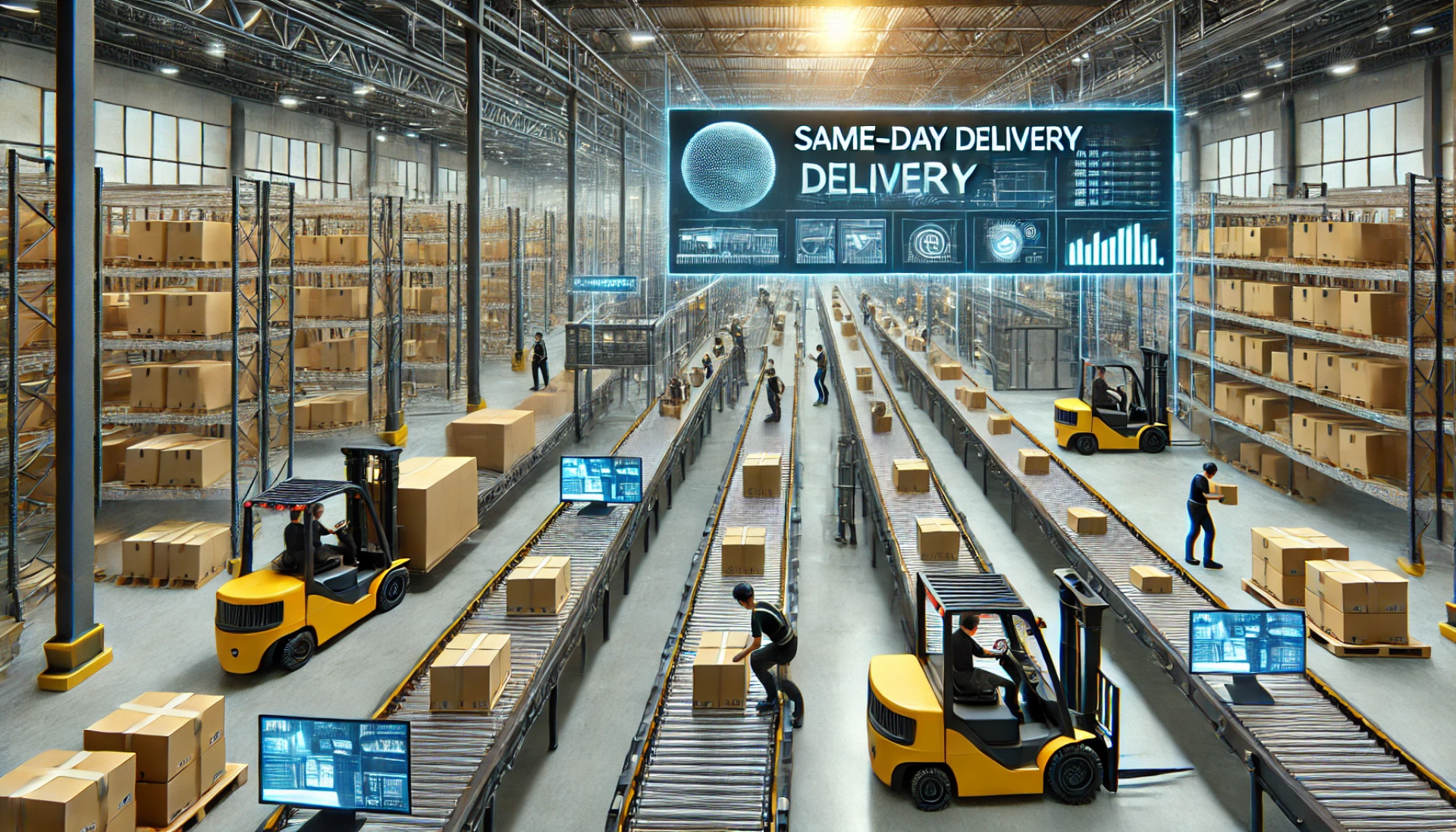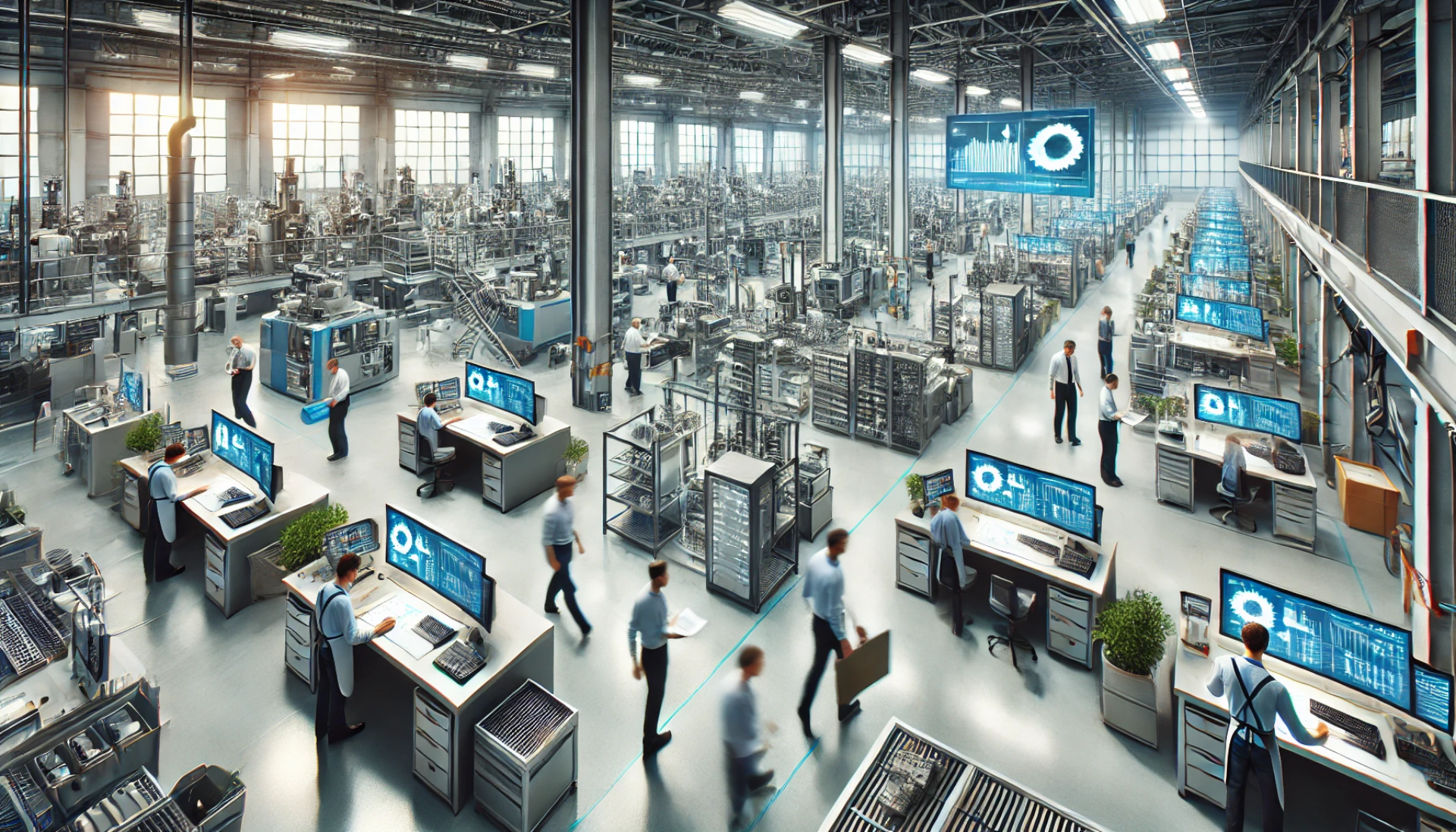The Battle for Skilled Workers: How Manufacturing Can Compete with Other Industries for Talent
Manufacturing in the UK faces a talent crisis of unprecedented proportions. While the sector contributes over £191 billion to the British economy according to Make UK, it's increasingly losing its most valuable resource—skilled workers—to competing industries. This talent exodus comes at a critical moment when technological advancement demands more specialised skills than ever before.
The Manufacturing Skills Gap Survey reveals a stark reality: 83% of UK manufacturers struggle to recruit appropriate talent, while 64% report losing skilled employees to other sectors—particularly technology, logistics, and renewable energy. This isn't merely a staffing challenge but an existential threat to the industry's future competitiveness and innovation capacity.
"Manufacturing has an image problem that masks its reality," notes Stephen Phipson, CEO of Make UK. "While other sectors have successfully repositioned themselves as modern, dynamic career destinations, manufacturing continues to battle outdated perceptions that undermine its appeal to today's workforce."
The good news? Forward-thinking manufacturers are finding ways to reverse this trend, implementing innovative strategies that not only stem the tide of departing talent but successfully attract skilled workers from other industries. This blog explores how manufacturing can transform its approach to talent acquisition and retention, repositioning itself as an employer of choice in an increasingly competitive marketplace.
Understanding the Exodus: Why Skilled Workers Leave Manufacturing
Before addressing solutions, it's essential to understand why skilled workers are abandoning manufacturing for alternative careers. The Institute for Manufacturing at Cambridge University identifies several critical factors:
1. Perceived Career Limitations
Many skilled workers report leaving manufacturing due to perceived career ceiling effects. According to a Cranfield University study, 57% of those departing manufacturing cited limited progression opportunities as a primary factor, compared to the seemingly endless advancement possibilities in sectors like technology.
Martin Davies, former Operations Director at a major UK aerospace manufacturer and now COO of a tech firm, explains his transition: "In manufacturing, my career path was clearly defined but narrowly constrained. The technology sector offered me broader opportunities to apply my operational expertise while developing new skills in emerging technologies and business models."
2. Compensation Disparities
While manufacturing wages remain competitive at entry and mid-levels, the compensation gap widens significantly at senior technical and management positions. ONS data shows that experienced manufacturing engineers earn, on average, 22% less than their counterparts in technology and 18% less than those in renewable energy for comparable experience levels.
This gap is particularly problematic for retaining mid-career talent with 8-15 years of experience—precisely when their accumulated knowledge becomes most valuable to manufacturers.
3. Work Environment and Flexibility Concerns
The post-pandemic workforce increasingly prioritises flexibility and working environment. YouGov research found that 64% of UK workers now consider flexible working arrangements "very important" or "essential" when evaluating career opportunities.
Many competing sectors have embraced this reality, with technology companies leading the way in offering hybrid working models, flexible hours, and results-oriented work environments. Meanwhile, manufacturing's physical production requirements have often been positioned as incompatible with such flexibility—an assumption that innovative manufacturers are now challenging.
4. Innovation Perception Gap
Perhaps most concerning is the "innovation perception gap"—manufacturing is often perceived as less innovative than sectors like technology or renewable energy, despite being a hotbed of advanced technology application.
The Manufacturing Technology Centre found that among STEM graduates, only 27% associated manufacturing with cutting-edge innovation, while 78% made that association with technology companies. This perception profoundly impacts recruitment, particularly of younger workers seeking dynamic, future-focused careers.
Strategic Repositioning: Manufacturing's Talent Opportunity
While these challenges are substantial, they also reveal clear opportunities for manufacturers to reposition themselves as compelling career destinations. Here are evidence-based strategies that forward-thinking UK manufacturers are implementing successfully:
1. Employer Brand Transformation: From Production to Innovation
Key Strategy: Reframe manufacturing as a technology-driven, innovation-focused industry.
The most successful manufacturers are fundamentally repositioning their employer brands away from traditional production narratives toward stories of innovation, problem-solving, and technological advancement.
BAE Systems transformed their recruitment messaging to emphasise their role in developing advanced technologies rather than simply manufacturing products. Their "Engineering the Future" campaign specifically highlights how manufacturing engineers are solving complex technical challenges using cutting-edge approaches—directly challenging the perception gap with technology companies.
Their UK Talent Director notes: "We've shifted our employer value proposition from 'We make things' to 'We solve impossible problems.' This subtle but powerful reframing has transformed our ability to compete for technical talent, particularly with candidates also considering technology companies."
This repositioning involves:
- Highlighting innovation stories across all recruitment materials
- Showcasing R&D investments and technology adoption
- Featuring employees solving complex challenges rather than traditional production imagery
- Emphasising the tangible impact of creating physical products that change the world
Practical Action: Audit all recruitment materials to eliminate outdated manufacturing imagery (assembly lines, repetitive tasks) and replace with innovation-focused content (collaborative problem-solving, advanced technology interaction, R&D activities).
2. Career Architecture Redesign: Creating Visible Advancement Pathways
Key Strategy: Develop and communicate multiple, visible career progression routes.
Siemens UK addressed the perceived career limitations by completely redesigning their technical career framework, creating what they call "Career Constellations" rather than traditional ladders. This approach visualises multiple potential progression paths for technical specialists, including:
- Technical specialist tracks that don't require moving into management
- Project leadership pathways for those interested in delivery but not people management
- Innovation accelerator roles focused on new technology development
- Traditional management routes for those seeking organisational leadership
- Cross-functional opportunities that leverage manufacturing expertise in other business areas
Their Head of Learning and Development explains: "We've moved from an implied career path to explicitly mapped progression options that demonstrate the breadth of opportunities within manufacturing. This visibility directly counters the perception that careers here are limited compared to other sectors."
Practical Action: Create visual career progression maps showing all potential advancement paths from each key entry position, ensuring these are prominently featured in both recruitment materials and internal development discussions.
3. Compensation Strategy Evolution: Beyond Base Salary
Key Strategy: Develop total reward packages that compete with other industries on overall value, not just base salary.
Acknowledging the base salary gap with some competing sectors, innovative manufacturers are reimagining their total compensation approach. Rolls-Royce implemented what they call "Whole Life Value" compensation, which includes:
- Skills premium payments for critical manufacturing capabilities
- Innovation bonuses linked to problem-solving and process improvements
- Technical mastery recognition through certification-based salary increases
- Career development funding for advanced qualifications and cross-training
- Stability premiums acknowledging the greater job security in established manufacturing
Their UK HR Director reports: "By articulating the total value proposition rather than focusing solely on base salary, we've substantially improved our offer acceptance rates when competing with technology firms. Our stability, combined with competitive total rewards, creates a compelling proposition for many candidates."
Practical Action: Calculate and explicitly communicate the total five-year compensation value of manufacturing roles compared to seemingly higher-paying alternatives, highlighting stability, progression, and non-salary benefits.
4. Flexibility Reimagined: Manufacturing's Unique Approach
Key Strategy: Create manufacturing-specific flexibility models rather than attempting to copy other industries.
Rather than trying to replicate the exact flexibility models of technology companies, leading manufacturers are developing approaches that work within production constraints while still meeting employee needs.
Toyota UK implemented what they call "Managed Flexibility" across their UK operations, including:
- Team-managed shift patterns where production teams collectively determine coverage
- Compressed work weeks offering longer shifts in exchange for additional days off
- Hybrid roles with designated production days and remote working days for aspects of the role that can be performed off-site
- Role sharing partnerships allowing two employees to coordinate coverage
- Career flexibility including sabbaticals and part-time pathways
Chloe Smith, their UK Production Manager, explains: "We stopped trying to force manufacturing into office-based flexibility models and instead developed approaches that work with our operational realities. By involving our production teams in designing these solutions, we've created flexibility models that actually enhance rather than compromise our manufacturing excellence."
Practical Action: Form a cross-functional team including production staff, HR, and operations to identify manufacturing-specific flexibility options that maintain operational excellence while improving work-life balance.
5. Learning Ecosystem Development: Continuous Skill Evolution
Key Strategy: Create visible, continuous learning pathways that demonstrate ongoing career development.
JCB addressed innovation perception challenges by developing what they call the "Continuous Evolution Framework"—a structured approach to ongoing skill development that makes learning pathways visible and celebrated.
This comprehensive development ecosystem includes:
- Technology innovation secondments where production employees work directly with R&D teams
- Industry 4.0 academies providing immersive training in advanced manufacturing technologies
- Cross-sector learning exchanges with technology companies and research institutions
- Micro-credentialing programs recognising incremental skill development
- Innovation time allocations for exploring new approaches and technologies
Their UK Learning Director notes: "By making skill development highly visible and directly connected to emerging technologies, we've changed the narrative around manufacturing careers from 'static' to 'constantly evolving'—directly challenging the perception advantage that technology companies have historically enjoyed."
Practical Action: Create visual skill progression roadmaps for key manufacturing roles, demonstrating how capabilities evolve alongside technological advancement and creating visible development pathways.
Talent Acquisition Reimagined: Proactive Approaches
Beyond repositioning the manufacturing employment proposition, leading companies are fundamentally rethinking how they identify and attract talent:
1. Skills-Based Recruitment: Looking Beyond Traditional Backgrounds
Key Strategy: Focus on transferable skills rather than industry-specific experience.
Jaguar Land Rover implemented what they call "Capability-First Recruitment," focusing on core skills rather than specific manufacturing experience. This approach has allowed them to successfully recruit from adjacent sectors including:
- Technology professionals with strong analytical capabilities
- Military veterans with leadership and technical skills
- Healthcare workers with precision and quality focus
- Retail managers with customer focus and operational excellence experience
Their recruitment team reports: "By focusing on the underlying capabilities rather than specific manufacturing experience, we've expanded our talent pool dramatically while bringing fresh perspectives into the organisation."
Practical Action: Rewrite job descriptions to emphasise core capabilities rather than years of manufacturing experience, explicitly welcoming candidates from adjacent industries with transferable skills.
2. Apprenticeship Reinvention: Modern Pathways into Manufacturing
Key Strategy: Develop next-generation apprenticeship models that compete with university pathways.
While manufacturing has a strong apprenticeship tradition, leading companies are reimagining these programs to compete with the appeal of university degrees and graduate schemes in other sectors.
Airbus UK transformed their apprenticeship approach with their "Digital Manufacturing Academy," which includes:
- Degree-level qualifications embedded within the apprenticeship
- Cutting-edge technology focus from day one
- Innovation project rotations across different business areas
- Competitive starting salaries benchmarked against graduate roles
- Clear advancement pathways into leadership positions
Since implementation, they've seen a 165% increase in high-calibre apprenticeship applications and a significant improvement in retention rates among early-career talent.
Practical Action: Benchmark your apprenticeship offerings against graduate schemes in technology and renewable energy, focusing on closing gaps in qualification level, technology exposure, and progression clarity.
3. Diversity-Focused Talent Strategies: Expanding the Pool
Key Strategy: Specifically target under-represented groups to access untapped talent.
Unilever addressed their manufacturing talent challenges through targeted diversity initiatives that dramatically expanded their candidate pool. Their "Manufacturing for Everyone" programme specifically targets:
- Women returners re-entering the workforce after career breaks
- Career changers from adjacent industries
- Veterans transitioning to civilian careers
- Neurodiverse talent bringing different problem-solving approaches
Their UK Manufacturing Director shares: "By explicitly developing pathways for groups historically under-represented in manufacturing, we've not only addressed our talent challenges but brought valuable new perspectives that have directly improved our innovation capabilities and operational performance."
Practical Action: Identify the most under-represented demographics in your current manufacturing workforce and develop specific recruitment pathways designed around their particular circumstances and requirements.
Implementation Roadmap: A Phased Approach
Transforming manufacturing's talent competitiveness requires a structured approach. Here's a practical implementation roadmap based on successful case studies:
Phase 1: Assessment and Strategy Development (Months 1-3)
- Conduct exit interviews with departing talent to identify specific push factors
- Benchmark your employer offering against key competing sectors
- Perform perception analysis among target talent demographics
- Develop tailored value propositions for different talent segments
- Create clear career progression visualisations
Phase 2: Employer Brand and Messaging Transformation (Months 4-6)
- Refresh all recruitment materials to emphasise innovation and technology
- Develop case studies of interesting, complex work in manufacturing roles
- Train recruiters and hiring managers on the new positioning
- Update job descriptions to focus on capabilities rather than experience
- Create comparative materials addressing perceived disadvantages vs other sectors
Phase 3: Structural Improvements (Months 7-12)
- Implement redesigned career frameworks with multiple progression paths
- Develop manufacturing-appropriate flexibility models
- Review and enhance total reward packages beyond base salary
- Create cross-training and development pathways that highlight continuous learning
- Establish recruitment pathways for non-traditional talent sources
Deborah Astles, HR Director at INEOS, who led a similar transformation, advises: "Patience is essential. Changing perceptions takes consistent effort over time, but the results are transformative.
After 18 months of focused work, we're now winning talent battles against technology companies that would have been unthinkable three years ago."
The Future Manufacturing Talent Landscape
Looking ahead, several emerging trends will shape manufacturing's ability to compete for talent:
1. The Digital-Physical Integration Advantage
As digital experiences increasingly dominate modern life, the opportunity to work in environments that combine advanced technology with physical creation represents a distinctive advantage for manufacturing—if properly positioned.
Dr. Katherine Tant, Industrial Digitalisation Specialist at the High Value Manufacturing Catapult, observes: "The pendulum is starting to swing back toward careers that combine digital expertise with tangible outcomes. Manufacturing offers this integration in a way pure technology roles cannot, creating a unique selling proposition for talent seeking meaning and impact."
2. Sustainability as a Talent Magnet
Manufacturing's crucial role in developing and scaling sustainable technologies and practices creates a compelling proposition for purpose-driven talent.
Aston Martin has successfully leveraged their sustainability transformation as a recruitment tool, emphasising how manufacturing professionals directly contribute to reducing environmental impact through material innovation, process efficiency, and circular economy approaches.
3. National Resilience Narratives
The pandemic and subsequent supply chain challenges have highlighted the strategic importance of domestic manufacturing capability, creating new narratives around manufacturing careers as essential to national resilience and security.
The Manufacturing Technology Centre has successfully positioned manufacturing careers as "Critical to National Resilience," appealing to candidates seeking meaningful work with broader societal impact.
Conclusion: From Competition to Competitive Advantage
The battle for manufacturing talent is not simply a recruitment challenge but a strategic imperative that will determine which companies—and ultimately which nations—maintain manufacturing competitiveness in an increasingly knowledge-driven economy.
Stephen Phipson, CEO of Make UK, offers this perspective: "The manufacturers who thrive in the coming decade will be those who successfully transform their talent proposition—not by mimicking other industries, but by authentically highlighting the unique opportunities that only manufacturing can offer: the combination of cutting-edge technology application, tangible creation, and meaningful impact on the physical world."
For manufacturing leaders, the message is clear: talent strategy deserves the same strategic focus, innovation, and investment as technology strategy. The companies that get this right won't just compete effectively for skilled workers—they'll turn their talent approach into a sustainable competitive advantage.
_______________________________________________________________________________________________________________________________________________
Is your manufacturing organisation struggling to compete for skilled talent? Recruit Mint specialises in helping manufacturers develop and implement effective talent strategies. Our deep understanding of both manufacturing requirements and competing sector propositions enables us to help you create compelling approaches that attract and retain the skilled workers you need. Contact our manufacturing recruitment specialists today to discuss your specific talent challenges.











